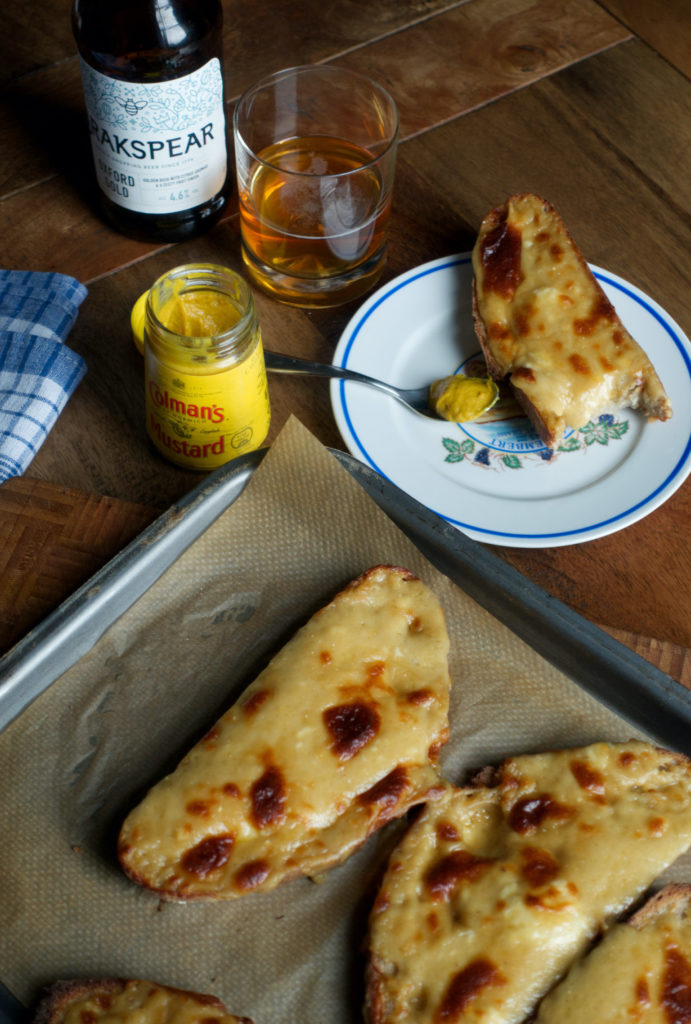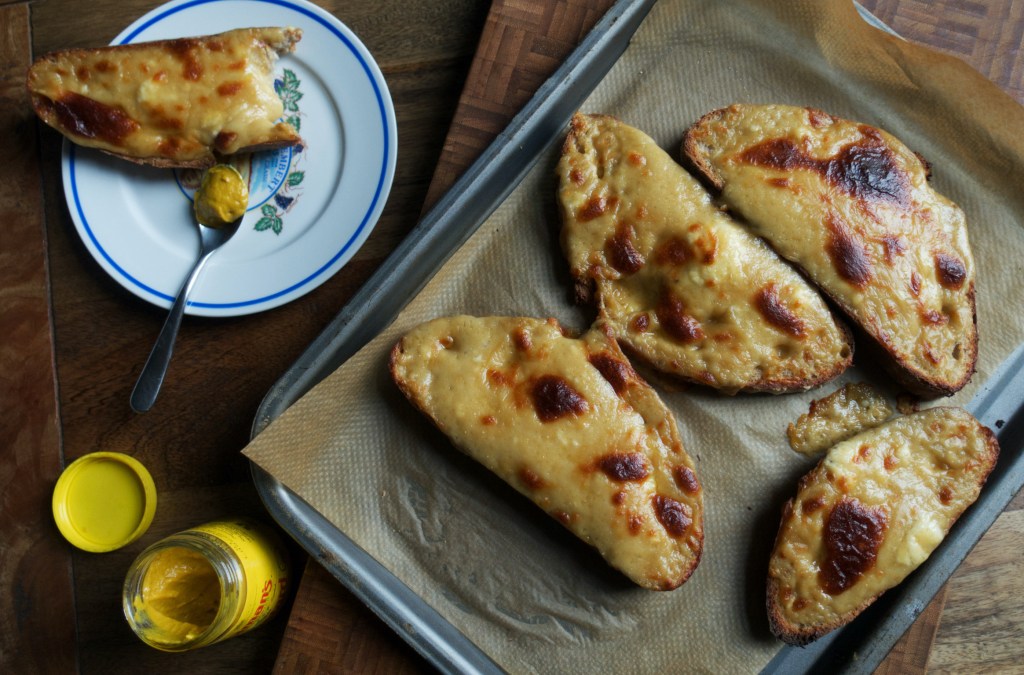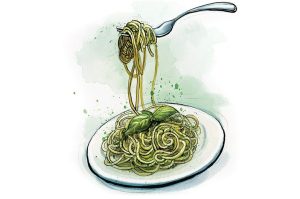‘Many’s the long night I’ve dreamed of cheese-toasted, mostly’: such is the power, the appeal of cheese on toast that when Ben Gunn is found, having been marooned on the eponymous island for three years, his longing for cheese on toast is one of his first statements.
When I find myself considering the possibility of another round of Welsh rarebit, it’s reassuring to remember that not only has such a craving been immortalized in fiction from over a century ago, but that the thought of cheese on toast can sustain a shipwrecked man. It makes my Sunday evening hankering for Welsh rarebit seem quite reasonable.
Of course, Welsh rarebit is no simple cheese on toast. A proper Welsh rarebit, in my books, must be made by sizzling together butter and flour, and then slowly adding beer until a thick, gloopy sauce forms. Then handfuls of mature cheddar are added, and the whole thing is spiked with hot mustard and a good splash of Worcestershire sauce. That sauce is splodged onto bread and grilled until it is blistered and leopard-spotted. If you’ve only had cheese on toast before, Welsh rarebit is a revelation: smooth, strong, and deeply savory.
In fact, savory is precisely the correct word. Technically, Welsh rarebit sits in that niche edible genre of ‘savory’ — a course peculiar to the British. It is a dish that comes after pudding, but is salty rather than sweet — designed as a palate cleanser before port is served. I confess that, as much as I might like to present the idea that I not only habitually serve port in my home, but ensure that everyone’s palate is cleansed before the decanter comes out, this isn’t the place Welsh rarebit occupies in my home. Welsh rarebit is firmly a Sunday supper here. Eaten off knees, in front of an episode of Grand Designs, it is extraordinarily satisfying.
On my first date with my now-husband, he cooked Welsh rarebit. At that point, I couldn’t cook at all, and I thought the whole thing was extraordinarily impressive. But it’s actually a very easy dish, one that can be thrown together in about 10 minutes. Somehow, though, for all its simplicity, it feels more of an occasion, more of a complete meal, more indulgent, than the humble cheese on toast.
Really, you can make this with whichever beer you fancy, and a dry hard cider works well too. My favorite is a golden ale, which brings a fantastic hoppy, boozy flavor, without being domineering. Stout or Guinness can be a delicious addition to a Welsh rarebit, but they can be potent: cut them with milk (3 fl oz of each) to prevent the sauce becoming overwhelming. If you’re looking to extend the dish, you can pop a fried egg on top, and turn it into ‘a buck rabbit’.
The paste will also keep well in a little pot in the fridge. It will solidify, but can be squished onto the toast straight from the fridge, ensuring you are never more than a moment away from Welsh rarebit.

Welsh Rarebit
Makes: Supper for four
Takes: 5 minutes
Bakes: 5 minutes
1oz butter
1oz plain flour
6fl oz ale
1 tbsp Worcestershire sauce
1 teaspoon English mustard
60z strong cheddar
4 large slices thick-cut bread
- Melt the butter in a saucepan over a medium heat. Stir in the flour until it forms a paste, then continue to cook until it sizzles and smells nutty. Pour in a little bit of the ale, and stir into the paste
- Add the ale slowly, stirring thoroughly to avoid lumps. Once you’ve added all of the ale, stir through the Worcestershire sauce, English mustard and, finally, the cheddar. You should now have a thick sauce. Check for seasoning, but you’ll probably find that the salty cheese has done the work for you
- Heat the grill to medium high and place the slices of bread on a baking tray. Toast briefly on one side, until firm and just starting to color. Remove from the grill and turn the slices of bread over
- Spread each slice very generously with the cheese sauce, right to the edges of the bread. Grill for 4-5 minutes, until the sauce is golden and brown-spotted
This article was originally published on Spectator Life.





















